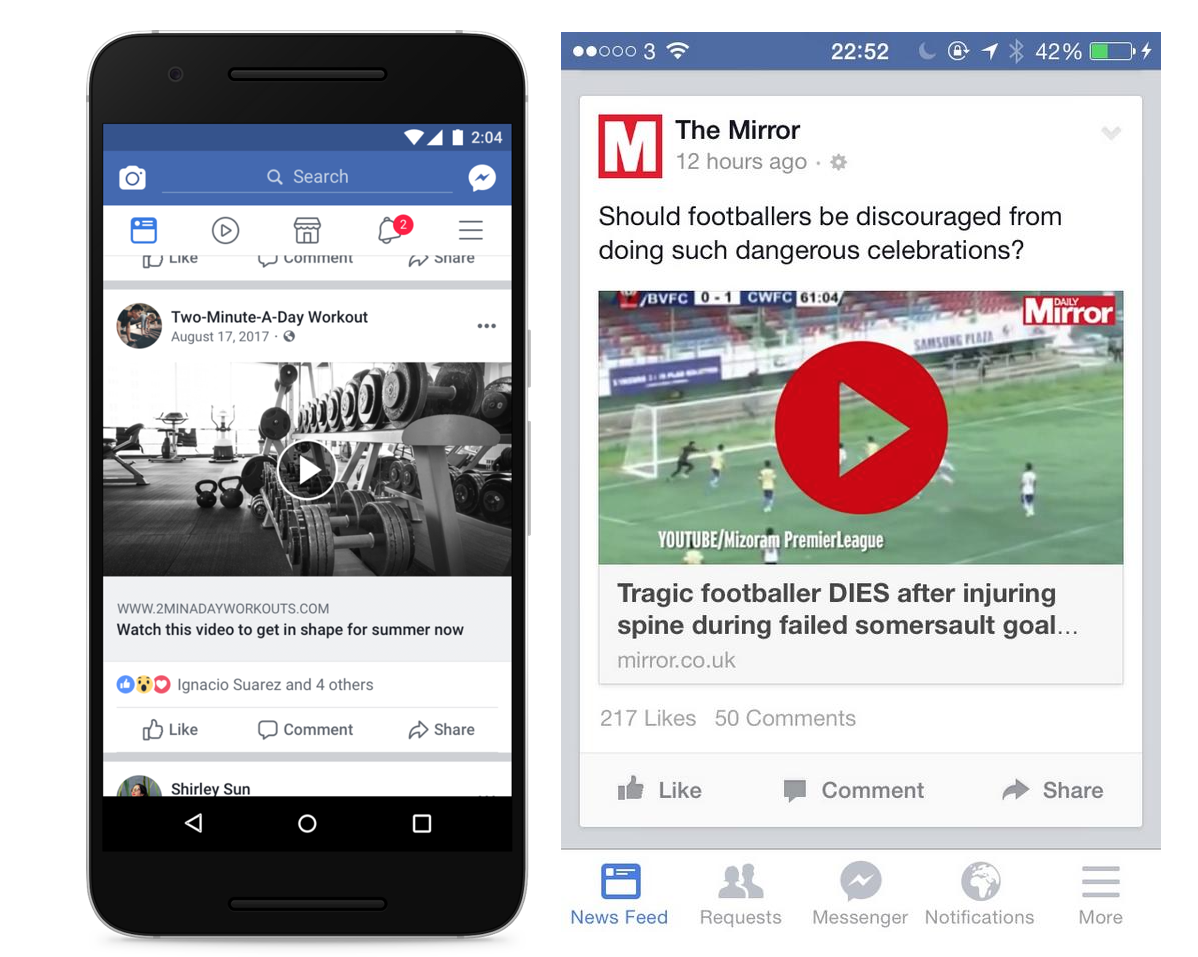— August 17, 2017

Photo Credit: Unsplash
Facebook is continuing its assault on videos that offer clickbait video titles or attempt to trick viewers to visit their websites with images that feature a fake video play button.
When videos are just a static image uploaded as a “video file” Facebook will now downrank those videos. This spammy tactic is used by publishers to trick users into visiting their websites. Facebook doesn’t delete the posts but rather places them outside of the general user’s news feed.
Here are some examples of fake play buttons used on a Facebook post:

Facebook has been fighting against fake play buttons for years but those images have remained in the company’s news feed product.
News Feed Product Manager Greg Marra tells TechCrunch that the company has stepped up its efforts.
“We’ve heard from people who are frustrated by fake play buttons” Marra says. “Spammers are using these tactics to trick people into clicking links to low-quality web pages.”
The social giant is using machine vision artificial intelligence to classify these videos in order to detect fake play buttons.
“While the prevalence is statistically low, the frustration expressed by people who use Facebook who encounter these deceptive practices is high” Marra added.
Publishers are being urged in meta tags to use phrases such as “Watch” and “Video” to clearly explain that a video is available for viewing.
Fake Buttons Are Not A New Issue
Some publishers have also tricked Facebook users by placing a fake Instant Articles “Lightning Bold” icon on the preview images for their posts. Users who click on the articles are taken away from Facebook and often land on a publisher page that is filled with spammy ads.
Facebook Instant Articles load faster and have been shown to increase viewership, however, they earn less advertising dollars for publishers.
Click-Bait Video Titles
Facebook is also downranking any articles that feature video-based headlines that are misleading or withhold information that is necessary for readers to understand immediately.
Fake news is being combatted by the company’s effort to show related articles that might better explain the topic in an honest and trustworthy manner.
Facebook hasn’t proven just yet that it can stop clickbait and spammy practices but it appears to be moving in the right direction. It will take a while for its machine learning tools to perfect detection but it’s at least a good start.
Digital & Social Articles on Business 2 Community
(43)